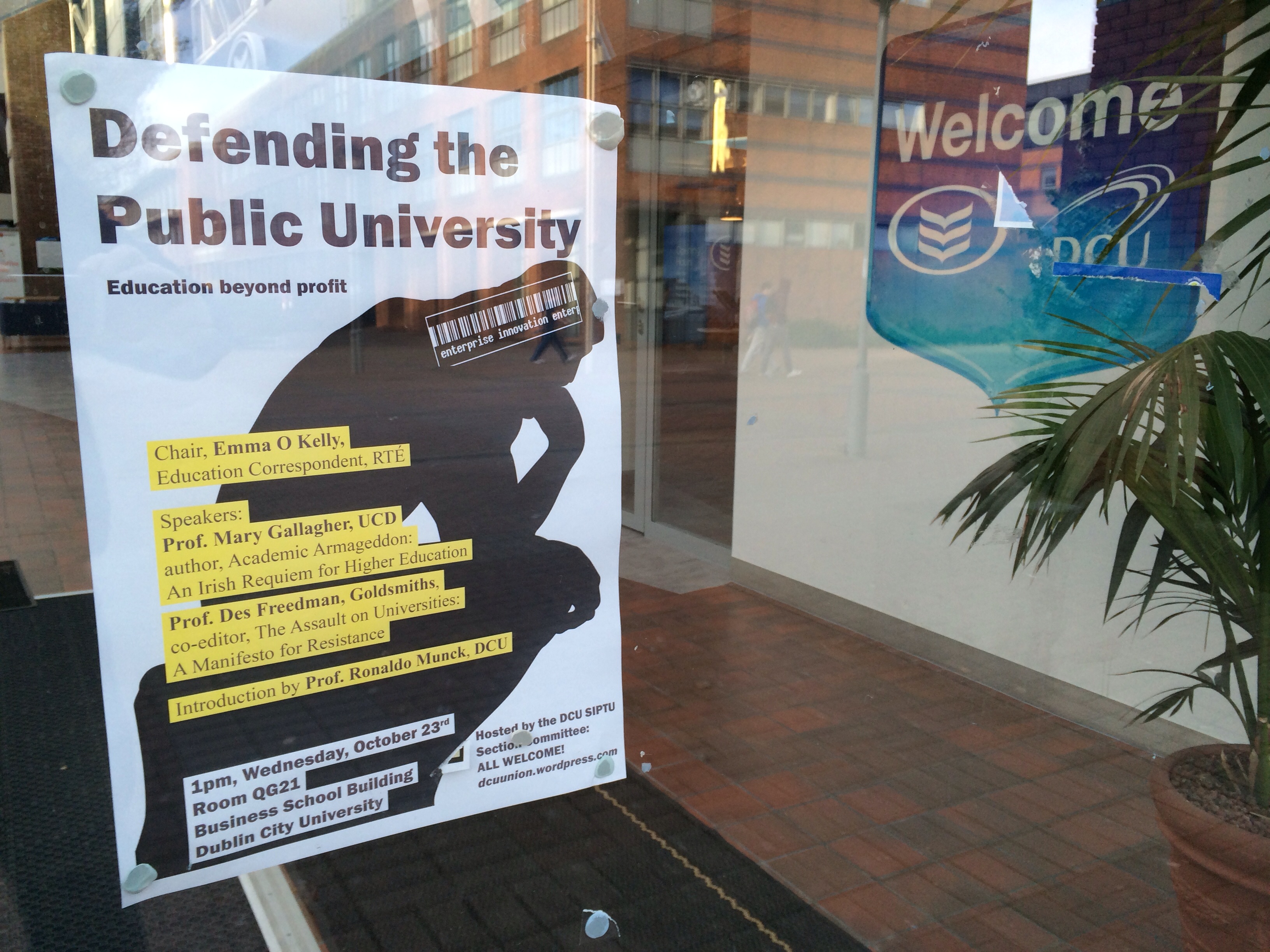
Almost one hundred years after Patrick Pearse said that “we have no education system, and only in isolated places have we any education. The essentials are lacking”, there is widespread consensus across the educational and political worlds that the Irish university is in crisis.
Most often, the crisis is diagnosed as a funding one and, indeed, the continuous bleeding of the system is at the root of the present crisis. But we believe there is also a crisis of perspectives, a failure of the imagination and an un-thought-out turn towards marketisation and managerialism which will destroy Irish higher education if it is allowed to be the only game in town.
The basic question we are posing is whether we all – both as concerned citizens and as higher education professionals or students – wish the university to be run according to the same business logic as a profit-making enterprise or whether we should seek to follow a public service or social accountability model and logic for the university. The choice is quite stark; the consequences of the debate for our students are incalculable.
We could just endorse the new managerialism (not the same as efficient management of course) and its vain chase after dubious rankings at home and abroad, or we can go back to basics and ask what a university should be about. It would be a rare business indeed, where those in the business and who have the expertise (academics in this case) were not the drivers of that (re) visioning exercise. That, we argue, is the key task of the day in Irish higher education.
At present a narrow, self-limiting strategy prevails in the Irish university focused on the marketisation of knowledge, teaching and research and the reduction of those who work in the universities to mere service providers. If higher education is a public good this bid to privatise it will not deliver the much vaunted ‘innovation’ it promises. Indeed, real social innovation is conspicuous by its absence in current statements around the future of the Irish university.
The recent report ‘Horizon Scanning: What Higher Education Will Look Like in 2020 (by the prestigious Observatory on Borderless Higher Education)’ argues in this regard that the downside of the turn towards the market is that ‘the ideal of higher education as a public good is under threat’. Yet greater public support for the university will not only increase access and participation by students who cannot afford to attend university, but it will also enhance the ‘competitiveness’ of the Irish university system as a whole. This is not special pleading, it is common sense.
Research at universities is largely paid for through the public purse, either directly or through the likes of public trusts and the vital tax exemptions that universities enjoy. Yet overall, the prevailing university mission seems to be to simply provide research back-up to the private sector, in less than transparent partnerships where the private/public divide is somewhat blurred. We need to ask bluntly ‘Who is publicly funded research serving?’. The current mission drift of the Irish university towards ‘enterprise’ seems to ignore knowledge generation for the public good.
In terms of teaching, undoubtedly the main innovation centres are around online learning. It is not a Luddite reaction to query where this is all heading. Sometimes an outdated transmission model of teaching seems to underlie what we might call the new technological opportunism which sees a technical fix for what is a social problem. One recent report concludes that ‘it is likely that many thousands of teaching jobs will have been lost in the US by 2020’. This is bad news not only for the lecturers concerned, but for the quality of teaching where face-to-face contact is central to knowledge formation and the development of critical thinking abilities.
In the early 20th Century there was a turn in university strategy towards viewing scholarships and teaching as producing knowledge that would advance social progress and alleviate human suffering. At present, conversely, a narrow market logic prevails which says we should simply teach and research what is profitable for private enterprise.
We need to explore what a public serving university in the early 21st Century might look like. That is a challenge but also a huge opportunity to create a university fit-for-purpose. We would like students to join us in this enterprise.
This article is an edited extract from the ‘Defend The University’ campaign that was founded in DCU. It is authored and endorsed by Mike Jennings (General Secretary, IFUT), Louise O’Reilly (Education Sector National Organiser, SIPTU), Dr. Rose Malone (President,IFUT) and Professor Ronnie Munck (DCU SIPTU). Further information on the campaign can be found at defendtheuniversity.ie




Leave a Reply